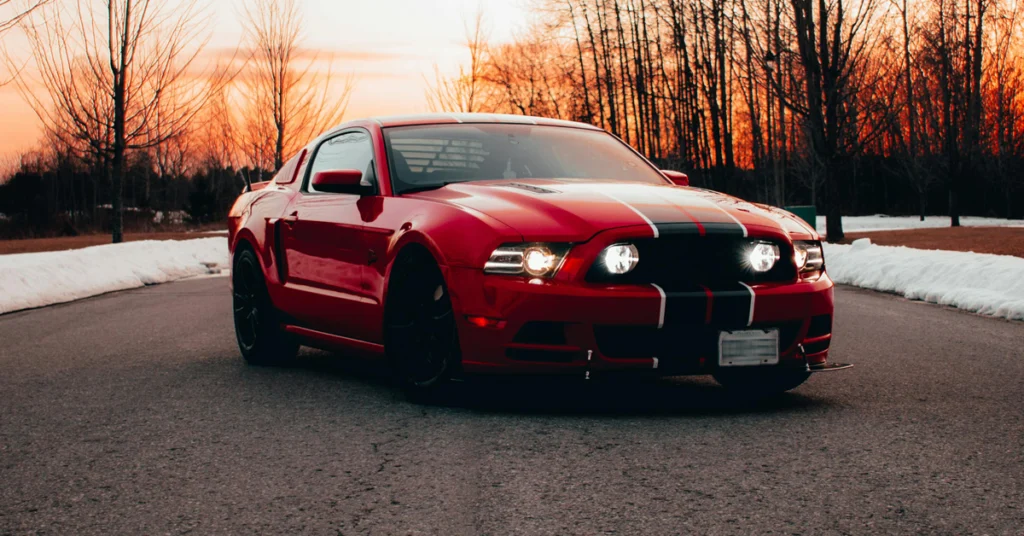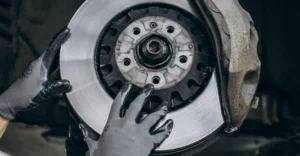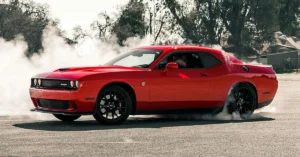When a feature built for safety turns into a potential hazard, it’s bound to raise eyebrows. Ford is once again under scrutiny as the company issues a recall affecting nearly 1.5 million vehicles built between 2015 and 2020. At the heart of the issue? Rearview cameras a technology designed to reduce accidents that may display distorted images or fail entirely. The irony isn’t lost on anyone, least of all the drivers who rely on these cameras every day to avoid the very collisions they’re now being blamed for.
The recall, launched in cooperation with the National Highway Traffic Safety Administration (NHTSA), marks another chapter in Ford’s ongoing struggle with quality control and electronic reliability. Yet, this isn’t merely a one-off fix; it’s part of a wider conversation about how complex modern vehicle electronics have become, and how even the most established automakers can be tripped up by a tiny camera feed.
What Triggered Ford’s 2025 Recall?
Ford’s latest recall stems from complaints filed with the NHTSA earlier this year. According to documents obtained by Reuters, the agency began receiving Vehicle Owner Questionnaires describing camera failures across multiple Ford and Lincoln models.
Ford opened its own internal investigation in February 2025, examining supplier data, warranty records, and customer complaints. Despite failing to isolate a universal defect pattern, the automaker decided to recall the affected vehicles “in the interest of customer safety.” It’s a move that may prove both costly and reputationally vital.
The recall affects models such as the Ford Mustang (2020), Escape, Fusion, Explorer, Flex, and Lincoln MKZ, among others vehicles that collectively represent years of high-volume sales.
Rearview cameras became mandatory on all new vehicles in the United States in 2018, a regulation that pushed automakers to integrate the feature rapidly. Ford’s recall serves as a sobering reminder that even tech once considered “solved” can break down when analog components meet digital complexity.
The Real Issue: When Safety Tech Turns Unsafe
Problem: The rearview cameras fitted to the affected vehicles can intermittently fail or display warped visuals.
Agitate: Imagine backing out of a tight parking space in a busy lot. You glance at the screen, and it flickers to black just as a pedestrian cross behind you. In a split second, your confidence in the system vanishes and so might your awareness of what’s actually behind the car.
Solution: Ford has launched a comprehensive inspection and repair campaign through its authorised service centres. Dealers will check the cameras, wiring, and associated modules, replacing defective parts at no cost to owners.
The automaker admits it has logged 12,487 warranty claims related to camera faults since 2014. Five minor accidents have been linked to the defect, though no injuries have been reported. Interim notifications are already being mailed, with final repair instructions expected by mid-2026.
Which Models Are Affected?
Ford’s recall spans a wide range of vehicles, covering both mainstream and luxury segments. The full list includes:
- 2015–2016 Ford C-Max
- 2015–2016 Ford Escape
- 2015 Ford Explorer
- 2019 Ford Fiesta
- 2015–2019 Ford Flex
- 2016 Ford Fusion
- 2020 Ford Mustang
- 2015–2016 and 2018–2019 Ford Taurus
- 2015 and 2019 Lincoln MKT
- 2015 Lincoln MKZ
These models fall under Ford’s new agreement with the NHTSA, which splits affected cars into two categories: those requiring a recall, and those covered by a 15-year extended warranty on the rear camera system.
Behind the Numbers – Ford’s Quality Control Challenge
Ford’s quality reputation has taken a hit in recent years. Recalls linked to transmission issues, battery fires, and software glitches have raised questions about production oversight. Rear camera failures might sound minor by comparison, but they highlight a bigger issue the growing fragility of vehicle electronics.
Modern cars contain more than 100 control units supplied by dozens of vendors. An analog camera, as simple as it seems, relies on signal integrity, image processors, and wiring harnesses. A single manufacturing flaw can ripple through the supply chain.
Analysts at Car and Driver note that replacing a rearview camera outside warranty can cost between USD 200 and USD 400, depending on model and labor rates. Ford’s decision to cover all repairs under recall is a pragmatic one cheaper than handling endless warranty claims and safer than facing potential lawsuits.
Consumer Reports has long warned that infotainment and camera systems rank among the most failure-prone features in vehicles produced between 2015 and 2020. Ford’s data aligns perfectly with that timeline.
How Ford Plans to Fix It
For affected owners, Ford’s roadmap is fairly straightforward:
- Interim notice: Owners receive an initial letter or email alerting them to the issue.
- Inspection appointment: Dealers will visually and electronically inspect the camera system.
- Repair or replacement: Defective units will be replaced with updated components free of charge.
- Final remedy notice: Once a permanent fix is validated, a follow-up communication will confirm the repair schedule.
Ford expects to begin full rollout of the final remedy by mid-2026, once supplier validation is complete. The company has also pledged to continue cooperating with regulators to ensure full transparency throughout the process.
Lessons for Drivers – Staying Ahead of Recalls
Recalls are part of modern vehicle ownership, but awareness can make all the difference. Here are a few tips to keep your car Ford or otherwise in check:
- Check your VIN regularly using the NHTSA Recall Lookup Tool.
- Respond quickly to recall notices. Delays can extend wait times for parts.
- Pay attention to early signs like flickering camera screens or lagging displays.
- Schedule diagnostics with authorised workshops rather than ignoring warning signs.
- Follow service bulletins published on the official Ford website for updates.
Proactive maintenance not only keeps your car safer but also preserves resale value. A recall handled promptly reflects well on both the owner and the brand.
Key Technical Data Sheet
| Specification | Details |
| Recall Scope | 1.5 million vehicles |
| Component | Rearview camera (analog system) |
| Model Years Affected | 2015 – 2020 |
| Reported Warranty Claims | 12,487 |
| Accidents Reported | 5 (no injuries) |
| Notification Start | Late 2025 |
| Final Remedy Release | Mid-2026 |
| Estimated Repair Cost | USD 0 (covered under recall) |
| Inspection Process | Dealer inspection and replacement if required |
FAQ
Q: Is my Ford affected by this recall?
You can confirm by checking your Vehicle Identification Number (VIN) through NHTSA’s recall lookup tool or Ford’s customer support portal.
Q: Will I have to pay for repairs?
No. All repairs associated with this recall are fully covered by Ford.
Q: How long does the inspection take?
Most inspections are completed within an hour, though replacements may take longer depending on parts availability.
Q: What if my camera fails before the repair?
Contact your local Ford dealer immediately. Avoid relying solely on the rear camera until the fix is completed, and use your mirrors when reversing.
Editor’s Verdict
Ford’s recall of 1.5 million vehicles might sound like another entry in a long list of manufacturer hiccups, but it also shows progress. The brand isn’t waiting for regulatory action it’s taking initiative. While no one likes a recall, this transparency may strengthen trust in the long run.
Still, the episode underscores a bigger reality: as vehicles become rolling computers, a single faulty pixel can become a headline. Ford’s next challenge is ensuring that the digital systems underpinning its cars are as reliable as the engines that made its name.
MotorHub UAE: Your Safety, Our Priority
In the UAE’s demanding climate, electronics endure far more heat and vibration than most global markets. At MotorHub, we connect car owners with certified workshops that handle complex diagnostics, electrical repairs, and recall-related services across all major brands Ford included.
Whether it’s a software update, sensor calibration, or complete system inspection, MotorHub’s verified service network ensures your vehicle stays road-ready and safe.
Stay updated with the latest automotive technology and recall news on MotorHub UAE.



